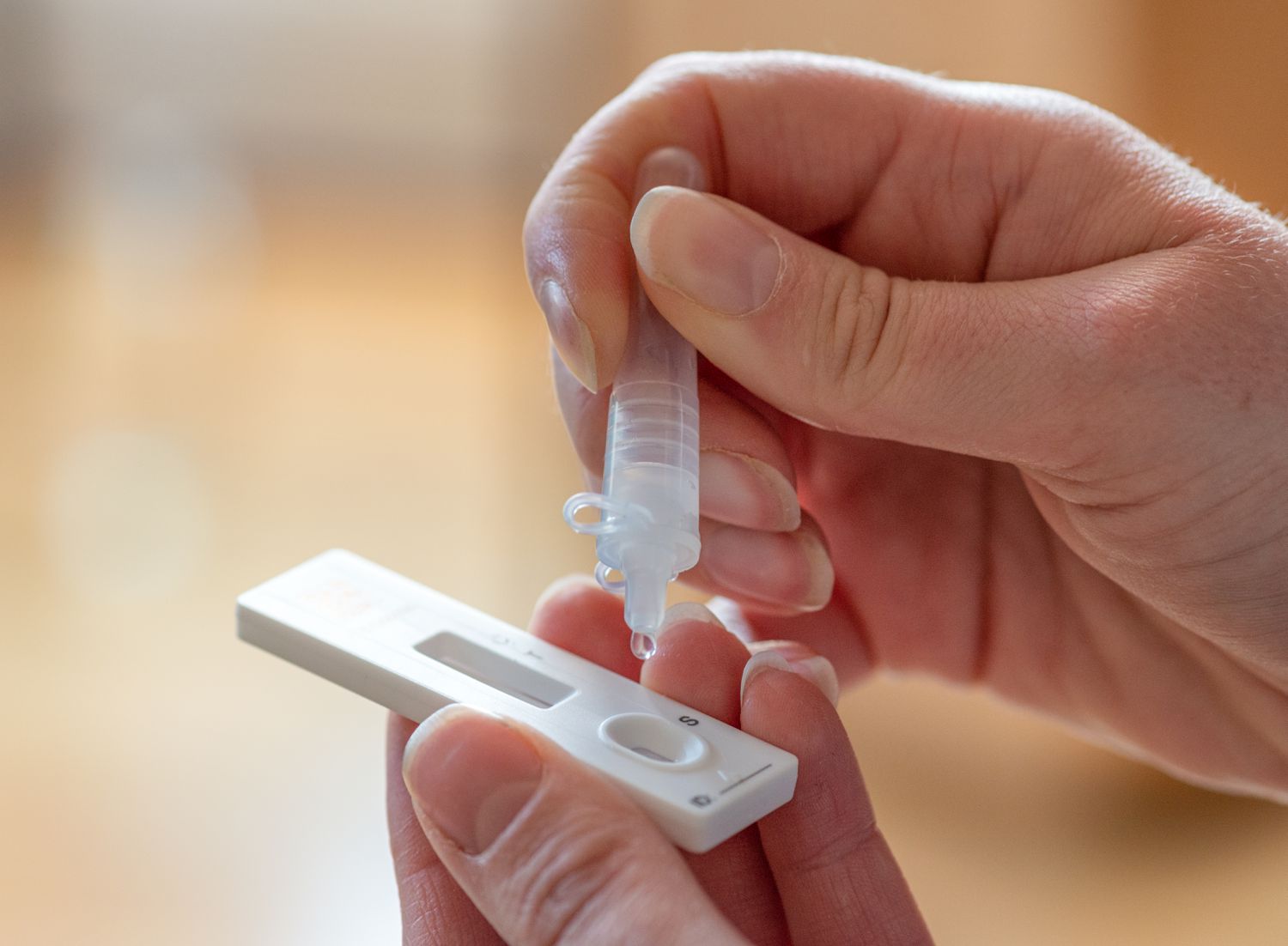"Is COVID Testing Still Necessary?"

If you have a sore throat and sniffles, does that mean you should test for COVID?
Over the years, COVID-19 has morphed from a global pandemic to a virus that experts have called “endemic,” meaning it’s a constant and predictable presence in our lives.
Though COVID can still be deadly and continues to lead to long-term, debilitating symptoms for some, most people recover without complications—and at this point, many view COVID as similar to the flu and other common respiratory illnesses.
Given the shift in thinking—and the current increase in cases—it’s understandable to wonder if you should still swab your nose every time you feel sick or if you can just assume you have COVID and move on with your life.
Here’s what infectious disease doctors recommend.
Before we dive into recommendations around testing, it's important to be aware of what symptoms to look for to begin with.
“It’s really anything cold-like,” William Schaffner, MD, an infectious disease specialist and professor at the Vanderbilt University School of Medicine, told Health. “But most colds don’t give you a fever—COVID can.”
With the current circulating strains, “sore throat is quite common, along with sinus congestion,” Thomas Russo, MD, professor and chief of infectious disease at the University at Buffalo in New York, told Health. “Some people will have a cough,” he added.
According to the CDC, other common COVID symptoms include:
Those who develop more severe cases may have symptoms like trouble breathing, persistent pain or pressure in the chest, confusion, or trouble staying awake.
The CDC’s stance—online, at least—around testing is softer than it once was. While the agency once urged testing, it now says that testing “can help you know if you have COVID-19 so you can decide what to do next, like getting treatment to reduce your risk of severe illness and taking steps to lower your chances of spreading the virus to others.” However, it doesn’t say that you should test—it just lays out some information on what to do if you decide to test yourself.
However, the doctors Health spoke to were divided on this topic. “I’m not as assertive in emphasizing that the average person gets tested—there is so much spread out there now,” Schaffner said.
Russo, however, said he generally recommends that people test themselves for the virus to know what they’re dealing with if they develop a more severe illness. “COVID is still more lethal than influenza,” he said. “No one is zero risk.”
While Schaffner generally doesn’t worry about whether the average person tests for COVID, he said that some people, in particular, should get tested if they develop symptoms. That includes high-risk people such as older adults, those on immunosuppressive medications, and people with conditions like asthma, diabetes, obesity, and pregnancy.
“If they are positive, these people are candidates for Paxlovid, which will reduce the chance of being hospitalized,” Schaffner said. People who interact with vulnerable individuals, like those who work or live with older adults or people who have loved ones with cancer, should also test themselves if they develop symptoms, Schaffner recommended.
Russo said that if you plan to gather with vulnerable family members, it’s also a good idea to test yourself, just to be safe.
Several COVID-19 testing options are available, including a PCR test, which is considered the gold standard for COVID testing. But Schaffner said it’s usually better to get a rapid test from your local drugstore or your doctor’s office.
“You can still get a PCR test at a doctor’s office, but the specimen has to be sent away,” Schaffner said. “It may be three days before you get results.”
According to Schaffner, you’re likely to have the most accurate results if you test when you’re symptomatic. If you know you’ve been exposed but don’t have symptoms, he suggests waiting four to five days to test yourself: “It takes time for the virus to turn up in your nose.”




